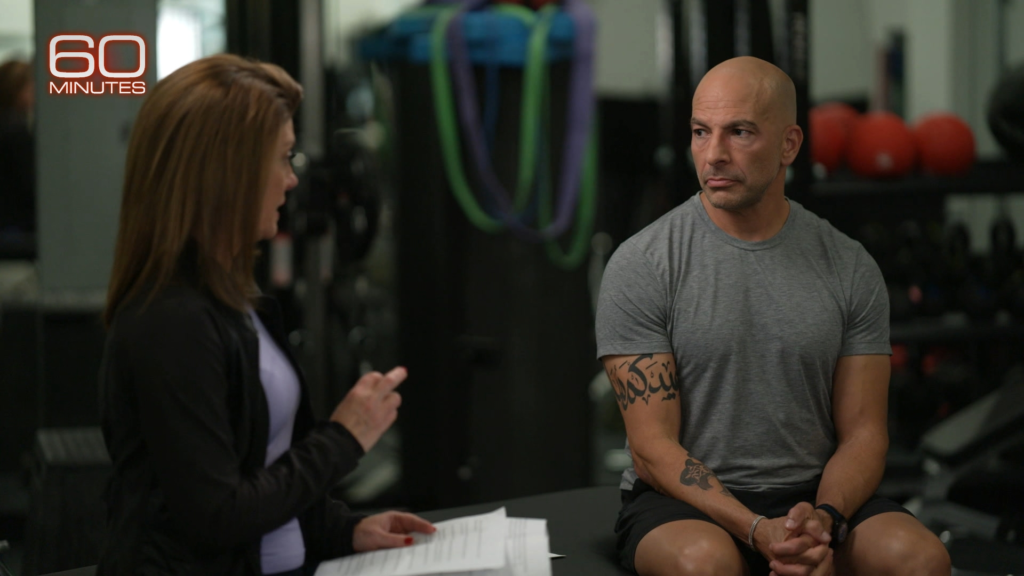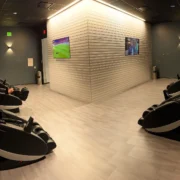Strength training may be in the spotlight, but Dr. Peter Attia used his appearance on CBS’ hit show to make the case that cardiorespiratory fitness — specifically, VO2 max — deserves equal attention
Strength training has never been hotter. Scroll TikTok or walk into any gym, and it’s the same story: everyone is chasing muscle gains. Strength equipment sales have surged, free-weight usage has skyrocketed and, judging by a 51% drop in time spent on cardio machines, treadmills and bikes are starting to look a little lonely.
But on CBS’s “60 Minutes” this past Sunday, Dr. Peter Attia, a Stanford-trained physician and co-founder of Biograph, who has become one of the most visible figures in longevity medicine, zoomed in on a piece of the longevity puzzle that isn’t getting the same attention: the heart and lungs. Strength is essential in his eyes, but cardiorespiratory fitness is the metric he says best predicts how well (and how long) we live.
Dr. Attia pointed to VO2 max (the measure of how efficiently the body uses oxygen during intense exercise) as a leading indicator of long-term health.
At around age 75, he said, both men and women “fall off a cliff,” referring to the sharp drop in physical and cognitive capacity that typically occurs later in life. His goal is to help people “create an escape velocity” that adds another decade-plus of capability, so those final years aren’t defined by decline.
That’s where VO2 max comes in. “It’s a measurement of the size of someone’s engine,” Dr. Attia told “60 Minutes” correspondent Norah O’Donnell.
The Ultimate Biomarker?
Assessing VO2 max is a key part of what his patients undergo when they arrive at his clinic for a two-day evaluation, along with measures of strength, movement and muscle mass. Dr. Attia called those factors a “neglected” part of standard medical testing. He currently sees fewer than 75 patients and maintains a waiting list.
“In many ways, these tests are even more predictive of how long you’re going to live than what I might get out of your blood work,” he said, adding that cardiorespiratory fitness, muscle mass and strength have a much higher association with longevity than markers like cholesterol and blood pressure.
It’s an interesting stance in a moment when at-home biomarker testing is booming and consumers are mailing in blood samples to quantify their health. Dr. Attia’s view suggests that, while those numbers have value, the body’s performance under real-world stress may tell the fuller story about long-term health.
O’Donnell experienced the approach firsthand. During her visit to Austin, Texas — where Dr. Attia is based — his team ran her through several assessments, including a VO2 max test. Essentially, a VO2 max test involves running on a treadmill while wearing a mask connected to equipment that analyzes your breathing, with the intensity gradually increasing until you reach your limit. When her score placed her in the 85th percentile for women her age, Dr. Attia offered a quick congratulations before noting there was still room for improvement.
When O’Donnell asked whether anyone (whether they’re 45 or 65) should be training like an athlete, not for the Olympics but for advanced age, Dr. Attia didn’t hesitate: “Absolutely,” he said. “Life is a sport.”
He practices what he preaches, aiming for about 10 hours a week of exercise, including cardio to burn fat, intense intervals to improve VO2 max, and weightlifting.
The Rapid Rise of Preventive Health
Dr. Peter Attia’s professional path bears resemblance to that of another Stanford graduate pushing preventive care into the mainstream: Dr. Casey Means, co-founder of the health-tech startup Levels, who has been nominated by President Trump to be U.S. surgeon general and is scheduled for a confirmation hearing on Thursday.
Like Dr. Means, Dr. Attia became disillusioned with traditional medicine, also noting that during his medical training, he received zero hours of education in exercise or nutrition. While training to be a cancer surgeon at Johns Hopkins, he said he burned out caring for terminal patients and left his residency, later making himself the first patient of the protocols he developed.
Dr. Attia describes his philosophy as “Medicine 3.0,” a shift away from treating disease only once it appears. “We’re dying of heart disease. We’re dying from stroke, cancer, dementia, type 2 diabetes,” he told “60 Minutes.”
He also advocates preventive screenings, including DEXA scans and full-body MRI scans, and encourages testing for the APOE gene, which is associated with Alzheimer’s disease risk, and eating more than double the current nutritional guidelines for protein.
Looking ahead, Dr. Attia plans to launch a digital health app next year, saying that about 80% of the program he uses with patients doesn’t actually require a physician.
And while his framework focuses heavily on movement, he says longevity isn’t just earned in the gym. Mental and emotional health, he told O’Donnell, also plays a vital role in how well we age.
“By working hard on our physical health, we can reduce the rate of decline,” he said. “But if we’re being deliberate and active on our emotional health, it can actually improve.”



